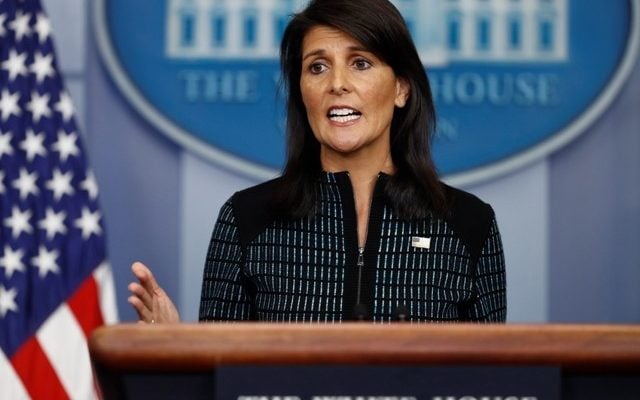“Without inspections, the Iran deal is an empty promise,” Nikki Haley, the United States Ambassador to the UN stated.
Nikki Haley, the United States Ambassador to the United Nations state that without adequate inspection of Iranian sites, the nuclear deal signed with the Islamic Republic is merely an empty promise.”
Addressing the revelation by Yukiya Amano, the Director-General of the International Atomic Energy Agency (IAEA), that his organization lacked the “tools” to verify Iran’s compliance with the 2015 nuclear, Haley said that without adequate inspection the deal was just an “empty promise,” Reuters reported on Thursday.
“If the Iran nuclear deal is to have any meaning, the parties must have a common understanding of its terms,” a statement by Haley read. “It appears that some countries are attempting to shield Iran from even more inspections. Without inspections, the Iran deal is an empty promise.”
Haley’s reference to “some countries” appeared to be directed towards Russia, which has argued that the IAEA, the UN’s nuclear watchdog, does not have the authority over Section T.
A Crucial Component of the Deal
Amano was referring to the IAEA’s ability to monitor activities which “could contribute to the development of a nuclear explosive device,” including computer simulations of a nuclear explosion and experiments testing multi-point, explosive detonation systems, which are mentioned in Section T of Annex 1 of the deal.
“If no Sec T verification, shows lack of full implementation of JCPOA,” the Institute for Science and International Security, a leading nonproliferation think tank, explained, “and adds to reasons to decertify” the nuclear.”
The Corker-Cardin Bill, also known as the Iran Nuclear Agreement Review Act (INARA) stipulates that the president must certify the deal every 90 days — the next certification is due October 15.
One of the criteria for certifying the deal is that “Iran is transparently, verifiably, and fully implementing the agreement.” By Amano’s admission, the IAEA cannot verify Iran’s implementation of the deal, as it can’t verify that Iran is not conducting “activities which could contribute to the design and development of a nuclear explosive device” listed in Section T.
By: The Tower





